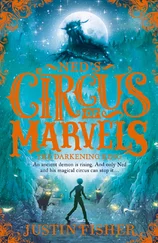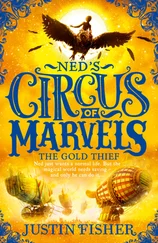So, okay. A problem .
But just give me enough current, Michael thought, and I can keep the virals out forever.
The Time Before: he sometimes trembled just to think of it, the great buzzing man-made electrical juiciness of it all. The millions of miles of wire, the billions of amps of current. The vast generating plants turning the bottled energy of the planet itself into the eternally affirmative question that was a single amp of current shooting down a line, saying, Yes? Yes? Yes?
And the machines. The wondrous, humming, glowing machines. Not just computers and Blu-rays and handhelds-they had dozens of these devices, scavenged over the years from trips down the mountain, socked away in the shed-but simple things, ordinary everyday things, like hair dryers and microwaves and filament lightbulbs. All wired up, plugged in, connected to the grid.
Sometimes it was like the current was still out there, waiting for him. Waiting for Michael Fisher to throw the switch and turn the whole thing-human civilization itself-back on.
He spent too much time alone in the Lighthouse. Fair enough. Just him and Elton, which most of the time was like being alone, in the social sense of things. In the let’s-chat-about-the-weather and what’s-for-chow sense of things. He didn’t say he didn’t.
And there was lots of juice still out there, Michael knew. Diesel generators the size of whole towns. Huge LNG plants fat with gas and waiting to go. Acres of solar panels giving their unblinking gaze to the desert sun. Pocket-sized nukes humming away like atomic harmonicas, the heat in the control rods slowly building over decades until someday the whole thing would just go sailing through the floor, exploding in a shower of radioactive steam that somewhere, high above, a long-forgotten satellite, powered by a tiny nuclear cell of its own, would record as the final agonies of a dying brother-before it, too, darkened, soaring headlong to earth in a streak of unacknowledged light.
What a waste. And time was running out.
Rust, corrosion, wind, rain. The nibbling teeth of mice and the acrid droppings of insects and the devouring jaws of years. The war of nature upon machines, of the planet’s chaotic forces upon the works of humankind. The energy that men had pulled from the earth was being inexorably pulled back into it, sucked like water down a drain. Before long, if it hadn’t happened already, not a single high-tension pole would be left standing on the earth.
Mankind had built a world that would take a hundred years to die. A century for the last lights to go out.
The worst of it was, he’d be there when it happened. The batteries were decaying. Decaying badly . He could see it happening before his eyes, on the screen of his old battle-hardened CRT with its thrumming bars of green. The cells had been built to last how long? Thirty years? Fifty? That they could hold any kind of charge after almost a century was a miracle. You could keep the turbines spinning forever in the breeze, but without the batteries to store and regulate the current, one windless night was all it would take.
Fixing the batteries was impossible. The batteries weren’t made to be fixed . They were made to be replaced . You could retrofit all the gaskets you wanted, clear away the corrosion, rewire the controllers till the herd came home. All basically busywork, because the membranes had had it. The membranes were cooked, their polymer pathways hopelessly gummed up with sulfonic acid molecules. That’s what the monitor was telling him with that little-bitty hiccup in the day-to-day. Short of the U.S. Army showing up with a brand-new stack fresh from the factory-Hey, sorry, we forgot about you guys!-the lights were going to fail. A year, two at the outside. And when that happened, it would be he, Michael the Circuit, who’d have to stand up and say, Listen, everybody, I’ve got some not-great news. Tonight’s forecast? Darkness, with widespread screaming. It’s been fun keeping the lights on, but I have to die now. Just like all of you .
The only person he’d told was Theo. Not Gabe Curtis, who was technically head of Light and Power but had mostly checked out when he got sick, leaving Michael and Elton to run the shop; not Sanjay or Old Chou or anyone else; not even Sara, his sister. Why had Michael chosen Theo to tell? They were friends. Theo was Household. Sure, there had always been a touch of the gloom about him-Michael of all people knew this when he saw it-and it was a heavy thing, to tell a man that he and everybody he knew was dead, basically. Maybe Michael was just thinking of the day when he’d have to explain the situation, hoping Theo would break the news instead, or at least back him up somehow. Yet even to Theo, who was better informed than most, the batteries were more like a permanent fixture of nature than something man-made, governed by physical laws. Like the sun and sky and walls, the batteries just were . The batteries drank up the juice from the turbines and spit it out into the lights, and if something went wrong, well, Light and Power would fix it. Right, Michael? Theo had said. This problem with the batteries, you can repair it? Around and around like this for some time, until Michael in complete exasperation had sighed and shaken his head and spelled out the situation in words of exactly one syllable.
Theo, you’re not hearing me. You’re not hearing what I’m saying. The Lights. Will. Go. Off.
They were sitting on the porch of the small, one-story frame house Michael shared with Sara, who was off somewhere for the afternoon, riding herd or taking temperatures in the Infirmary or visiting Uncle Walt to make sure he was actually eating and washing-mooning around restlessly, in other words, the way she always did. It was late afternoon. The house stood at the edge of the short-grass meadow where they turned out the horses to graze, though the dry days of summer had come on early, and the field was the color of bread crust, burned clear through to the dirt in places, forming bare spots that pillowed with dust when you walked across them. Everybody knew the house as the Fisher place.
“Off,” Theo repeated. “The lights.”
Michael nodded. “Off.”
“Two years, you say.”
Michael studied Theo’s face, watching the information taking hold. “It could be longer, but I don’t think so. It could be less, too.”
“And there’s nothing you can do to fix it.”
“No one can.”
Theo exhaled sharply, as if he’d just taken a punch. “Okay, I get it.” He shook his head. “Flyers, I get it. Who else have you told?”
“Nobody.” Michael lifted his shoulders in a shrug. “You’re it.”
Theo rose and moved to the edge of the porch. For a moment neither spoke.
“We’ll have to move,” Michael said. “Or else find another power source.”
Theo was looking away, toward the field. “And just how do you suggest we do that?”
“I don’t. I’m just stating it as a fact. When the batteries drop below twenty percent-”
“I know, I know, that’s it, no lights,” Theo said. “You’ve made that clear.”
“What should we do?”
Theo gave a hopeless laugh. “How in hell should I know?”
“I mean, should we tell people?” Michael paused, searching his friend’s face. “So they can, you know, prepare themselves.”
Theo thought a moment. Then he shook his head. “No.”
And that was all. They’d never spoken of it again. When had that been? Over a year ago, along about the time Maus and Galen had gotten married-the first wedding in a long, long time. It felt strange, everyone so happy, and Michael knowing what he did. People were surprised that it was Galen up there with Mausami, instead of Theo; only Michael knew the reason, or could guess at it. He’d seen the look in Theo’s eyes that afternoon on the porch. Something had gone out of him, and it didn’t seem to Michael like the kind of thing a person could get back.
Читать дальше












